13 Tips To Achieve Your Fittest Body After 50
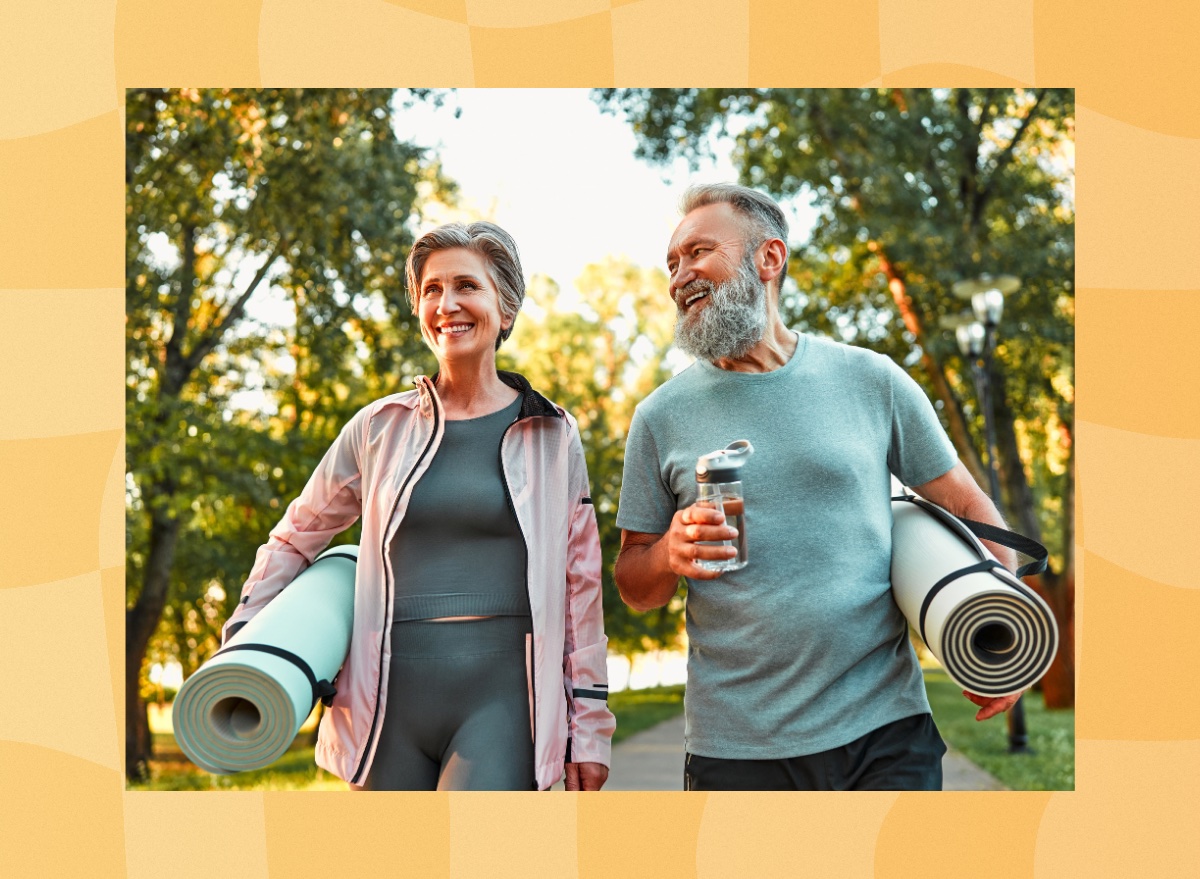
Whether you're in your 30s, 40s, 50s, or beyond, having the right approach to your health and fitness can help you achieve remarkable results. Maintaining a healthy, active lifestyle becomes more important than ever as you age, but navigating the abundance of conflicting online information can be challenging. Fortunately, we chatted with Kate Meier, CPT, a certified personal trainer with Garage Gym Reviews, who reveals 13 expert tips to get fit after 50.
Regular physical activity is vital to maintaining muscle mass, bone density, balance, and coordination as you age. That's why incorporating cardiovascular exercise, strength training, and mobility exercises into your routine can help you stay fit, healthy, and thriving for decades past 50. Additionally, eating a healthy, well-balanced diet and getting the right nutrients can support your fitness goals and help you maintain a healthy weight for optimal aging.
"As you enter your 50s, the list of factors to consider as you plan your fitness regimen grows," says Meier. "You may focus more on aspects of overall health—such as maintaining good heart health, joint health, or mobility—aside from the physical changes associated with working out. Combining exercise, diet, and lifestyle habits is important if your goal is to get fitter overall, and the following tips can help you reach your goals and maintain optimal fitness in your 50s."
Read on for Meier's 13 tips to get fit after 50.
Keep up with strength training.
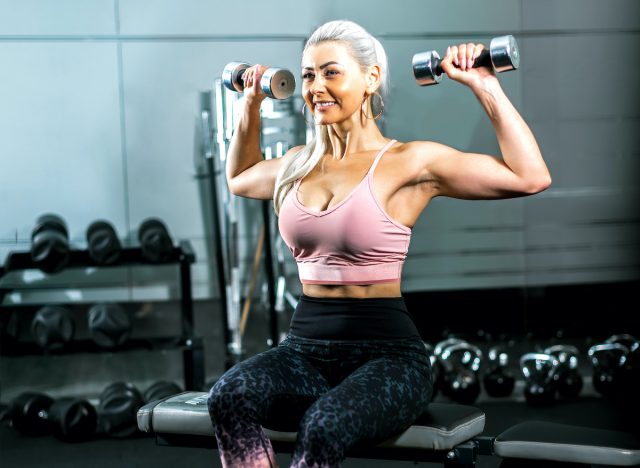
Strength training helps you maintain muscle mass and bone density—two crucial components for staying strong and preventing injuries as you age.
"Staying consistent with resistance training is an important part of maintaining your fitness as you age," states Meier. "Beyond improving muscle mass and bone density, strength training also helps keep your metabolism strong."
Don't forget about cardio.
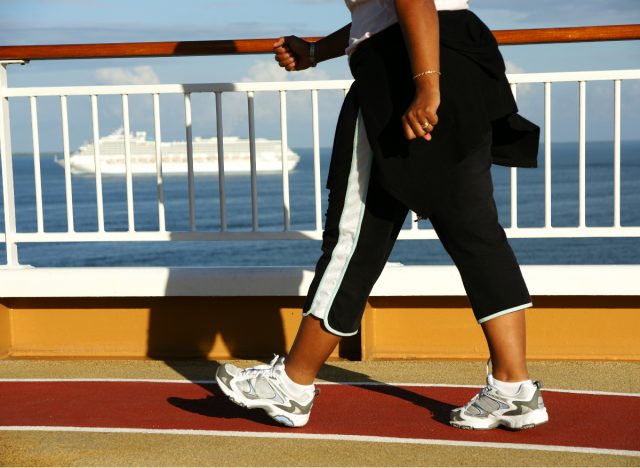
Regular cardio exercise, such as brisk walking, jogging, cycling, and swimming, is essential for heart health. Research shows that cardio also helps support healthy weight management and overall fitness.
"Cardiovascular exercise is especially important to reduce the risk of a range of age-related conditions, including heart disease, and it's especially effective when combined with strength training for a well-rounded regimen. Plus, cardio burns additional calories and promotes a healthy metabolism," says Meier.
Focus on balance and mobility.
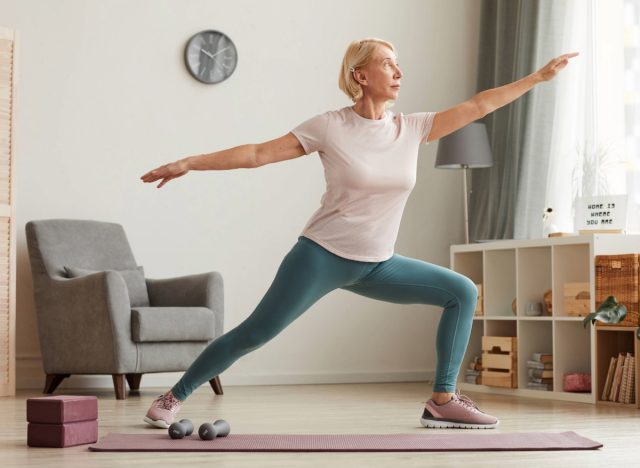
The better your balance and mobility, the less likely you are to experience falls and injuries as you age.
"Good balance is a key aspect of healthy aging," states Meier. "Incorporate exercises that promote good balance, like single-leg movements and movements that involve shifting your weight from one side to the other, to maintain good balance as you age."
Move more throughout the day.
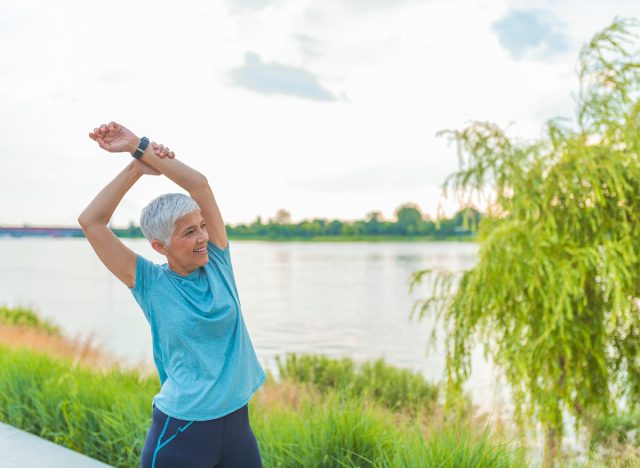
Staying active throughout the day, even with short walks or stretching, can counteract the negative effects of prolonged sitting.
Meier says, "Getting workouts in is important, but so is moving throughout your day, especially if you work a sedentary job. Try to walk around as frequently as you can, whether it's just for a few minutes at a time throughout the day or in the form of a nice walk in the morning or evening."
Stay hydrated.
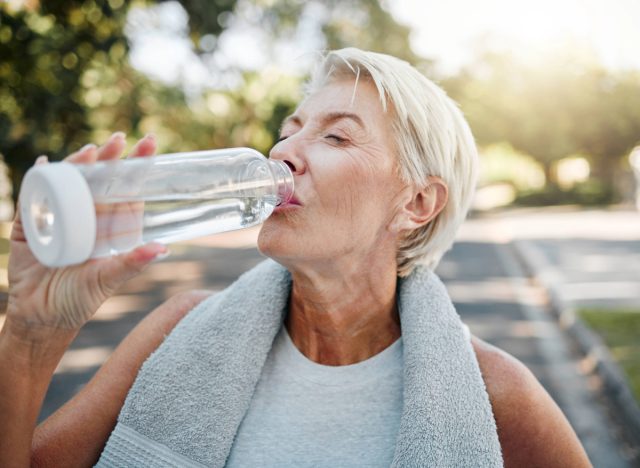
Drinking water and eating hydrating foods are vital for staying hydrated. It aids in digestion, nutrient absorption, and maintaining energy levels. Proper hydration has even been linked to slowed aging and better long-term health. Additionally, Meier cautions that dehydration can easily derail your health and fitness by causing fatigue, cramps, and other adverse side effects.
Prioritize sleep.

Getting enough sleep is a non-negotiable aspect of achieving peak fitness. According to the National Institutes of Health, sufficient sleep boosts your mood, cognitive performance, and overall health. On the contrary, not getting enough quality sleep can increase your chronic disease risk.
"Getting enough sleep goes a long way in helping you feel good and get the most out of your workouts and day-to-day life," says Meier. "Generally, aim to get at least seven hours of sleep."
Focus on nutrition.

Eating a balanced diet rich in nutrients combats inflammation, helping you stay energized and recover from workouts faster.
"Getting all the nutrients your body needs is important to maintaining your health as you age," explains Meier. "Also, choosing foods that support heart and brain health is key to ward off some of the diseases that become more common with age, like diabetes, heart disease, and cognitive disorders."
Keep your routine consistent.
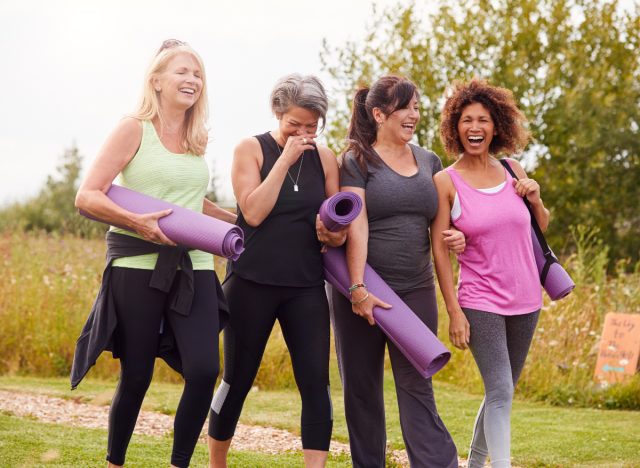
Consistency in your exercise routine helps ensure long-term health benefits and allows you to continuously progress over time, regardless of your age.
Meier tells us, "In your 50s, staying active is the best way to make sure you maintain the skills, strength, and balance you've built over the years for as long as you can. Also, getting back into exercising may be more difficult if you take extended breaks."
Do workouts you genuinely enjoy.
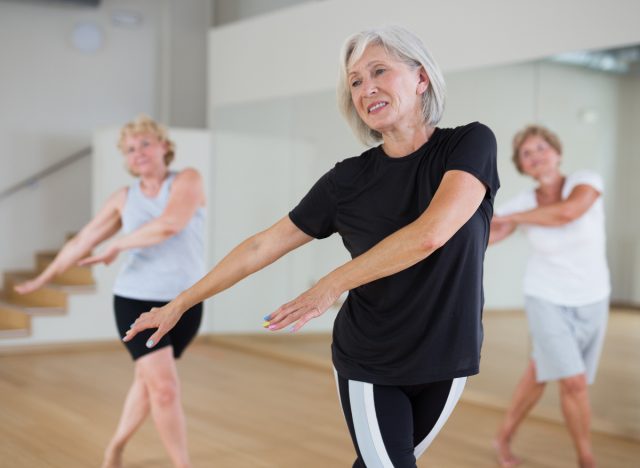
Engaging in exercises you enjoy makes it easier to stay motivated and on track toward your health and fitness goals. This tip is so simple that many people looking to boost their fitness often overlook it.
"If you work out in a way that you love, both physical and mental health stand to benefit because you'll be spending time on an activity that gives your brain a break from day-to-day work, chores, and errands," says Meier.
Find a fitness buddy.
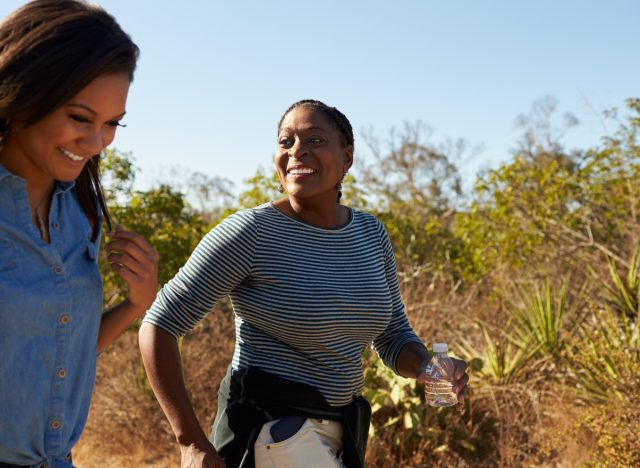
A workout partner can boost motivation and accountability and make exercising more enjoyable. In fact, research suggests that engaging in physical activity with a partner is associated with increased fitness and better adherence to workout routines.
"Finding camaraderie in another fitness enthusiast with similar goals and facing the same challenges you are can work wonders for your fitness routine," says Meier. "A buddy can help hold you accountable for your workouts and nutrition goals, as well as be a great sounding board if you find yourself frustrated."
Pump up the protein.
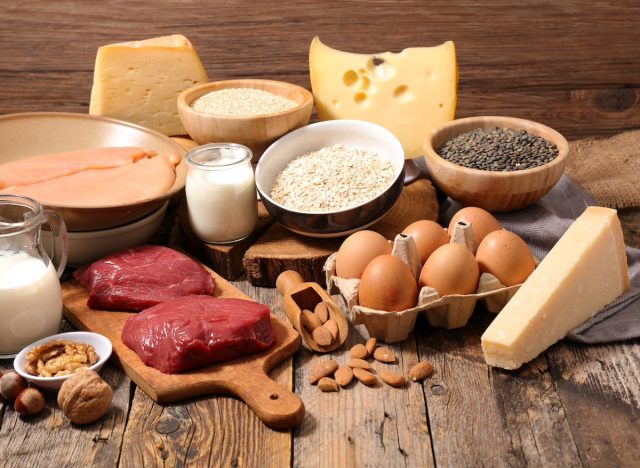
Studies show that increasing your protein intake supports muscle maintenance and repair, which can keep you strong and active as you age.
"Your nutrition needs change as you age, and research suggests that older adults fare better when they eat more protein than younger adults," Meier explains. "While the recommended protein intake for younger adults is about 0.8 grams of protein per kilogram of body weight each day, an international research group in 2013 recommended an average daily intake of 1.0 to 1.2 grams of protein per kilogram of body weight for older adults, or more for those who are particularly active."
Keep up with your doctor's visits.

Regular check-ups with your healthcare provider help monitor your health, ensuring your fitness routine is doing what it's supposed to: keeping you healthy and thriving.
Meier tells us, "Recommended screenings for certain diseases and general wellness measures like blood pressure and cholesterol help determine your risks of a range of age-associated diseases and can help catch any potential problems early."
Don't neglect mental health.
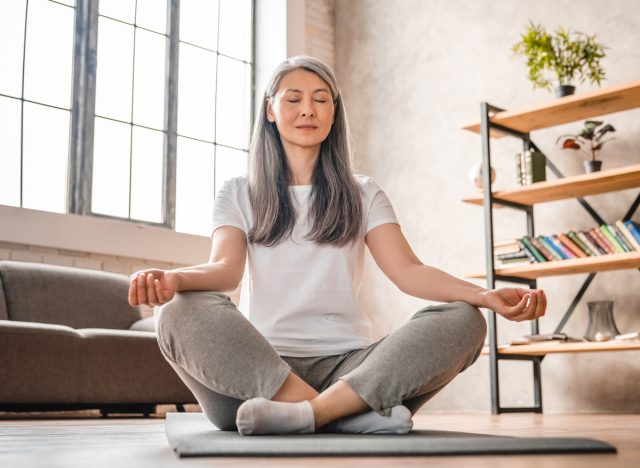
Mental health is just as important as your physical well-being.
"While your mental health may not directly impact how fit you look on the outside, it's an overarching piece of the puzzle that can make every tip on this list more difficult if you aren't feeling your best," says Meier. "Stress, in particular, can take a greater toll on your body as you age, and finding ways to manage it can help everything else fall into place."
- Source: https://www.ncbi.nlm.nih.gov/pmc/articles/PMC5830901/
- Source: https://www.niams.nih.gov/health-topics/exercise-your-bone-health
- Source: https://www.nia.nih.gov/news/how-can-strength-training-build-healthier-bodies-we-age
- Source: https://www.ncbi.nlm.nih.gov/pmc/articles/PMC3925973/
- Source: https://pubmed.ncbi.nlm.nih.gov/34642755/
- Source: https://www.nhlbi.nih.gov/news/2023/good-hydration-linked-longevity
- Source: https://www.nhlbi.nih.gov/news/2023/good-hydration-linked-healthy-aging
- Source: https://www.ncbi.nlm.nih.gov/pmc/articles/PMC8511423/
- Source: https://www.ncbi.nlm.nih.gov/pmc/articles/PMC6566799/
- Source: https://www.jamda.com/article/S1525-8610(13)00326-5/fulltext
- Source: https://pubmed.ncbi.nlm.nih.gov/23867520/









